

Tao Te Ching
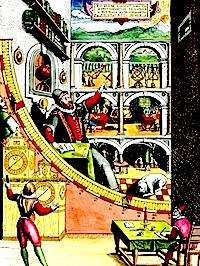
The Age of Reason: The Enlightenment (1620 – 1800 CE)
Challenging the widespread totalitarianism of the day, Enlightenment thinking confronted some of evolution’s most entrenched but atavistic residue: tribalism, authoritarian politics, scapegoating projections, and magical thinking. This stoked fires of demagogic, religious, cultural, and political resistance that still rage; but also, set civilization on a new course of science, reasons, and real, humanistic progress. Historian Will Durant called this process an “Intellectual Adventure out of superstition obscurantism, and intolerance to scholarship, science, philosophy.” Beginning with the scientific revolution, Enlightenment attitudes advanced principles like progress, individual liberty, separation of church and state, religious tolerance, and paved the way for later political revolutions. A profound influence on Benjamin Franklin, Thomas Jefferson, and James Madison who incorporated many of these ideals into the US Constitution; this profound cultural mind shift was based on a conviction that knowledge, science, and reason could advance human progress and happiness. Still opposed by religious conservatives, faith-only based philosophies, and political opportunists; The Enlightenment continues today by opposing authoritarian dictators, narrow tribalistic identities, and hypnotic belief systems that lull us into confusion and complacency.
Sages (94)
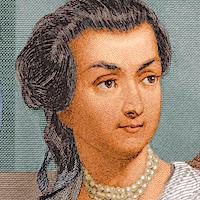
Abigail Adams
1744 – 1818 CE
One of the most exceptional women in American history
The first USA Second Lady and second First Lady, wife and advisor to president John Adams, mother of president John Quincy Adams, and one of the most exceptional women in American history; Abigail Adams became instrumental in the founding of the United States. A powerful influence for women’s rights, she emphasized the need for their education. A strong voice against slavery, she believed it was evil and a threat to democracy. Opposed to dogmatic, superstitious religious belief, she advocated for a heart-felt connection with a wisdom beyond words rather than a rote belief. Her accomplishments become more impressive when you consider the culture of her time when women’s roles were mainly domestic and educating women was considered foolish. Abigail never went to school but her self-education made her the most wise and influential in an extremely influential family.
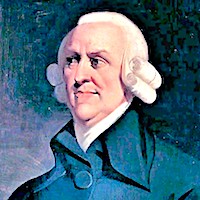
Adam Smith
1723 – 1790 CE
''The Father of Economic Capitalism"
Economic pioneer, moral philosopher, professor, and major influence on the Scottish Enlightenment; Adam Smith helped create the "cult of the free market" when he published The Wealth of Nations—one of the or the most influential books on economic theory ever written. Unlike many famous and influential books that were virtually unknown during the author's life, the Wealth of Nations went through 5 editions while Smith was still living. A close friend and advisor to David Hume, Smith also had frequent conversations with Benjamin Franklin, Gibbon, Burke, and knew Voltaire. He put his economic theories into practice converting his home town of Glasgow's business leaders to his policy of free trade. Kidnapped by gypsies when young, Smith refused the expected ordination after 6 years studying at Oxford, and turned conventional morality upside down by proclaiming being rich as the same thing as having integrity.
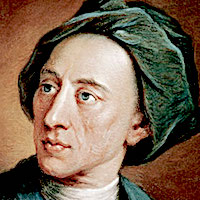
Alexander Pope
1688 – 1744 CE
Second most quoted English writer
Second most quoted English writer after Shakespeare, anonymous and profound influence on culture, compassionate commentator on humankind’s foolishness; Pope foresaw and criticized the growing materialism and consumerism of his era. His critiques were so pointed and insightful, they aroused such hatred that he was viciously slandered with lies and was forced to carry a pistol when he went for walks. From a Catholic family in England when Catholics were banned from teaching or going to a university; Pope’s aunt had to teach him to read and he was largely self-taught with help of sages like Homer, Horace, Virgil, Shakespeare, and Chaucer. Suffering ill health from an early age, he had a kind of tuberculosis from age 12 that turned him into a severe hunchback and limited his height unto only 4 feet, 6 inches. Transmuting his difficulties into art, he completed impressive translations, critical essays, and poems that created new forms as well as inspiring both people of his times and ours.
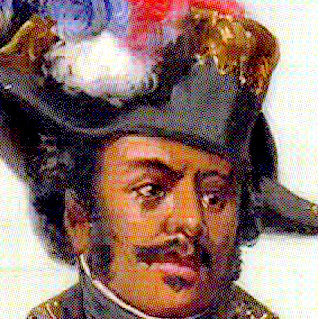
Alexandre Dumas
1762 – 1806 CE
The first black to become a French general, the highest-ranking one ever in a European army, and until 1975 the highest ranking one in all the Western world; Alexandre Dumas’ mother was a slave, his father a nobleman who sold him but then bought him back and provided an exceptional education. Dumas became a pivotal leader during France’s Revolution Wars, greatly respected by Napoleon Bonaparte, but known by his enemies as the ”Black Devil.” His grandson, also named Alexandre Dumas used him as an inspiration for his most famous characters and became one of France's most popular writers of all time. Sarah Bernhardt promoted his memory and symbolism of breaking shackles.

Arthur Schopenhauer
1788 – 1860 CE
Though mainly unnoticed during his life, after he died Schopenhauer’s work had a huge impact on psychology, literature, art, philosophy, music and science. He was one of the first Western thinkers to affirm major aspects of Eastern philosophy. He called himself a Buddhist and compared his philosophy to basic Buddhist teachings. Einstein extolled Schopenhauer’s life-long influence and he was also respected and emulated by people like Nietzsche, Tolstoy, Freud, Jung, Joseph Campbell and Thomas Mann. His influence continues today into fields like modern evolutionary psychology.

Balthasar Gracian
1601 – 1658 CE
Spanish Jesuit, philosopher and prolific writer, Gracian amplified the slogan/quote tradition of Aesop, Yang Xiung, the Dhammapada, Atisa and continued by Erasmus and Ben Franklin. At times highly respected, he was also exiled by outraged superiors for his provocative philosophy and lost his teaching tenure. An important influence on Nietzsche, Voltaire, Schopenhauer and Winston Churchill; his book Art of Worldly Wisdom - translated into many languages – continues today as a best seller and exceptionally valuable resource of helpful advice.
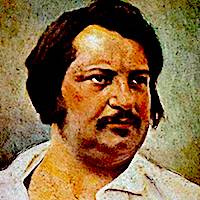
Balzac (Honoré de Balzac)
1799 – 1850 CE
(–1850)
Novelist, playwright, journalist, founding influence on European realism; Balzac only lived 51 years but wrote 92 novels, many short stories and plays. Famous for his 2000+ morally ambiguous and multi-faceted characters, he called himself a “Secretary of Society” and thought of his novels as a kind of history. He pioneered and made popular both the “novel of ideas” and the multi-generational, sequencing novel that carried characters from one story and period of their life to another. A dramatic failure in most of his life, he ran for a political office but only received 20 votes while just one of the other candidates had almost 160,000. No matter how much money he made, he was never self-supporting because of an insatiable appetite for luxuries and he had to frequently change homes and names to hide from creditors. Multiple business ventures failed miserably but his money-making optimism didn’t fade. His influence extended to luminaries like Émile Zola, Charles Dickens, Jack Kerouac, Henry James, Akira Kurosawa and Friedrich Engels among many more.
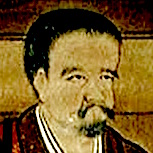
Bankei 盤珪永琢 (Bankei Yōtaku)
1622 – 1693 CE
Along with Dogen and Hakuin, one of the most influential Japanese Zen masters, Bankei developed a teaching he called “Unborn Zen” - a refinement D. T. Suzuki called “one of the most original developments in the entire history of Zen thought.” As a student, Bankei traveled widely, studied Confucian texts, practiced
Shin Buddhism, studied with many famous scholars, became a monk, but remained unsatisfied. Seriously ill and with a fatal prognosis, a near-death experience led to his enlightenment and return to health. Refusing a senior position in his monastery, he instead worked in the kitchen and then moved to the mountains living as a hermit and developing his teaching of seeing into the true nature of existence.
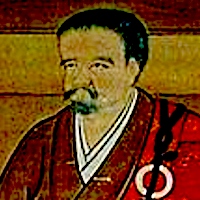
Bankei Yōtaku 盤珪永琢
1622 – 1693 CE
Zen Master of the unborn
Along with Dogen and Hakuin, one of the most influential Zen masters, Bankei developed a description of realization he called "Unborn Zen." D. T. Suzuki thought this one one of the most important and original descriptions in all the history of Zen. A rebellious child always getting into trouble, his early studies with Confucian and Buddhist scholars led to frustration for both Bankei and his teachers, to him getting expelled from his family home and having to live in a neighbor's tiny hut. He practiced so long and so hard that his health deteriorated to an extent causing his doctor to predict an imminent death. Healed by his realization however, he lived another 48 years. Refusing a high status position in his monastery, he worked in the kitchen and later lived alone in the mountains.

Baruch Spinoza
1632 – 1677 CE
One of the most important, radical, and influential philosophers in the modern era, Spinoza established a strong foundation for democratic political thought, the 18th-century Enlightenment, and a view beyond sectarian religion. Known as ”the prince of philosophers” and one of our greatest thinkers, Spinoza was born Jewish but was excommunicated at an early age. Criticized and ridiculed during his life, he was an important inspiration for Karl Marx, Nietzsche, Goethe, Santayana, Borges, and the deep ecology movement. Albert Einstein said Spinoza was the biggest influence on his world view and Will Durant called him his "favorite philosopher."

Benjamin Franklin
1706 – 1790 CE
Beginning his adult life as a penniless runaway, Franklin became one of the world’s most admired people. He was a founding father, diplomat, scientist, philosopher, businessman, inventor, and the politician most responsible for winning the Revolutionary War. His inventions included the lightning rod, bifocals, the Franklin stove, and he helped start many new civic organizations including voluntary fire departments and paid police forces. He recreated the slogan/quote tradition of Aesop and Atisa that we continue in our “Comments” link.

Benjamin Lay
1682 – 1759 CE
Benjamin Lay (1682 - 1759)
Physical dwarf but moral giant, “the world’s first revolutionary abolitionist,” inspiration for generations, wild, confrontational, and uncompromising opponent of slavery; Benjamin Lay wrote over 200 polemics against slavery, sweatshops, over-consumptions, capital punishment, the prison system, decadent rich elites, and for vegetarianism, animal rights and sustainability. Living a lifestyle of almost complete self-sustenance, he grew his his own food, made his own clothes, lived in a cave eating only fruits and vegetables, and wouldn’t use anything that came from the killing of animals. Unconstrained even when abandoned by his fellow Quakers (who later commonly kept pictures of him in their homes), he became the prototype of a class and race-conscious, environmental ultra radical and pioneered ways of protesting still used today.
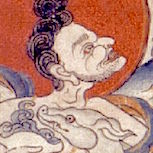
Bhikṣanapa བྷི་ཀྵ་ན་པ། ("Siddha Two-Teeth")
940 CE –
Mahasiddha #61
Bhikshanapa བྷི་ཀྵ་ན་པ། “Siddha Two-Teeth” (10th century CE)
Low caste and very poor, Bhikshanapa unexpectedly inherited some wealth. Like most people today winning a lottery or inheriting unaccustomed riches, he quickly lost it all along with his fair-weather friends. This led to a period of intense self-loathing and depression but also an openness to meeting and hearing a teacher and new way of experiencing the world. Seeing through his consumerism andspiritual materialism, he metaphorically (and possibly physically too), lost all but two of his teeth which became symbols for the balance and harmony of wisdom and skillful means. Resuming his external life style of roaming from village to village, he transformed from a miserable, needy beggar only thinking about himself into a wonderful teacher constantly dedicated to helping others. Mahasiddha #61
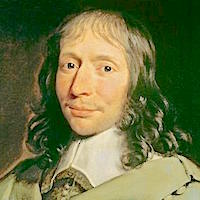
Blaise Pascal
1623 – 1662 CE
One of the greatest French writers of all time
Theologian, inventor, physicist, philosopher; Pascal invented the mechanical calculator, set up the first bus line moving passengers, became one of the greatest French writers, and developed probability theory which has become critical to economics, actuarial science, and the way we understand decision-making and risk. Although he identified with Jansenism which emphasized original sin and human depravity and frequently fixated on religious dogma, his understanding extended to a deep realization of our strong propensity toward projection and self-deception as well as a philosophy of cutting through this kind of deceit and duplicity. His significant scientific contributions led to attaching his name to a programming language, a unit of pressure, and a hydrostatic law. Will Durant called one of his writings, "the most eloquent book in French prose.”
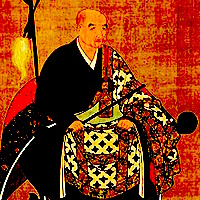
Bunan 至道無難 (Shido Bunan Zenji Munan)
1603 – 1676 CE
When young and known as the “Kana-writing boy” because of his skills, Bunan started practicing Zen and became a married innkeeper but also an addicted gambler and alcoholic. A chance encounter with a teacher, Gudo led to a radical life change, his enlightenment, and a recognition of the corruption that had entered the Rinzai Zen tradition. He became a famous poet, the teacher of Shoju Etan, teacher to Hakuin who revitalized Japanese Zen, and started many of the modern lines of Zen masters. Bunan eschewed fame and fortune, conventionality, rules, and following the words of the teaching rather than the sense.
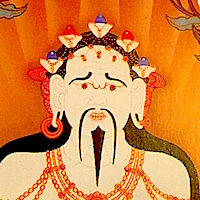
Campaka ཙ་མྤ་ཀ (“The Flower King”)
820 CE –
Mahasiddha #60
Extremely wealthy, powerful, caught up in pleasure, and sitting on a throne made from sweet-smelling flowers; Kampala met a wandering yogi. He tried to impress the sage with the splendors of his kingdom and the beauty of his flowers but the sage told him the truth, that his flowers smelled great but his body not so much, that his realm was wonderful but before long it and he would be gone. Realizing the superficiality and meaninglessness of his life, Kampala began a spiritual path but only shifted his physical materialism into spiritual materialism. Directed to focus his meditation on “the flower of pure reality,” he practiced and finally realized the empty essence of his mind. Mahasiddha #60
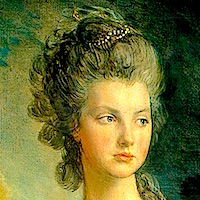
Catherine the Great Екатери́на Вели́кая (Catherine II)
1729 – 1796 CE
Russia’s longest-ruling female leader, “enlightened despot,” author, great patron of the arts, flamboyant and powerful; Catherine the Great helped create and ruled over Russia’s Golden Age revitalizing the institutions, modernizing it’s infrastructure, helping the serfs and emphasizing the arts. She shared more and more power with the nobles, tried to help the peasants, but the rapid expansion of the state relied on taking away much of their freedom and land causing their dissatisfaction and rebellions. She enthusiastically supported the The Enlightenment, helped Russia to become one of Europe’s great powers, greatly expanded colonizations that went as far as Alaska but was accused of many unjust wars. She established the first state-financed higher education institution for women in Europe and supported French philosophers like Voltaire and Diderot when his Encyclopédie was being oppressed in Europe. More licentious than most of her male counterpoints, history records 22 male lovers, many much younger, one only 22 when she was 61.
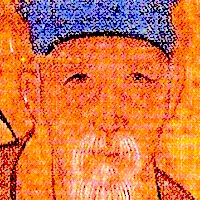
Chén Jìrú 陳繼儒
1558 – 1639 CE
Collector and publisher of rare books, powerful influence on Chinese culture and taste during the 16th century, Chen’s influence continues today. His book, Tea Talks (茶董補) written in 1595 is still popular and quoted in Japan, China, and here now. Creator of the Yixing-style purple clay teapots, his innovations in pottery, painting, literature, and calligraphy continue. Instead of taking the familiar path of respected literati and entering politics, Chen burnt his scholar robes as a symbol of rejecting that path and as a launching into a solitary lifestyle immersed in Buddhism and Taoism. Originator of the famous crane soaring among clouds image, he wrote an autobiography that included his imaginary death.
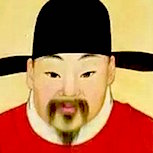
Chiao Hung (Jiao Hung)
1540 – 1620 CE
A voice for the real, for substance, for seeing through concepts and artificiality, and an author of one of the most useful Tao Te Ching compilations, the Lao-tzu-yi written in 1587; Chiao Hung included his own thoughts as well as mainly Sung dynasty commentators. Writing during a time of radical change from Ming Neo-Confucianism into new forms, his influence helped restructure Neo-Confucianism, and brought a resurgence of Taoist insight and influence into Chinese philosophical history.
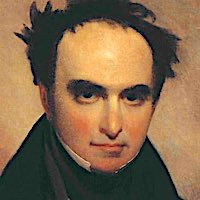
Daniel Webster
1782 – 1852 CE
America's greatest orator
Two-time US Secretary of State and presidential candidate, leading Supreme Court attorney, and Senator; Daniel Webster was named as one of the five greatest senators in history, gave "the most eloquent speech ever delivered in Congress,” and his style—for at least 75 years—became the main exercise for students of oratory. A key supporter of President John Quincy Adams and leading opponent of Andrew Jackson, historians consider him instrumental in maintaining United States union over the Southern efforts of creating a states-rights Confederacy. In John F. Kennedy’s book Profiles in Courage, he described one of his positions risking denunciations and his presidential ambitions, one of the “greatest acts of courageous principle in the history of the Senate.” On the other hand however, he supported wars against Native Americans, the Fugitive Slave Act of 1850, war against England because they wouldn’t return fugitive slaves, and opposed the Dorr Rebellion. In many ways, Webster represents the art of compromise—both the positive and negative aspects of giving away something important for something even more important. For example, he supported the Fugitive Slave Act of 1850 which made it easier for slave owners to recapture runaway slaves; but, in exchange, California was admitted into the Union as a non-slave state tipping the balance to more non-slave than slave states.
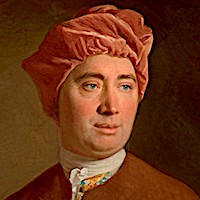
David Hume
1711 – 1776 CE
"One of the most important philosophers"
Hume's father died when he was two and his mother encouraged his education which developed him into a true polymath in philosophy, mathematics, science, economics, history and literature. His writing career began when he was only 16 but—popular with the ladies and aristocratic society—he kept most of his controversial, influential writings secret and they weren't printed until after his death. Mainly recognized as an historian during his life, his post-mortemly published philosophical works became a major influence on thought leaders like Francis Bacon, Descartes, Newton, Locke, Berkeley, Adam Smith and all who came after them. Kant said that Hume woke him up from his "dogmatic slumbers."

Deqing (Te-Ch’ing)
1546 – 1623 CE
A leading Buddhist monk and poet during the Ming Dynasty, Deqing had a big influence on the Wanli Emperor but was caught in the middle of political conflict between the emperor and his mother as well as tensions between powerful Daoists and Buddhists. In 1595 he was put on trial, imprisoned, and later exiled. His monastery (one of the largest Buddhist centers in China) was burned to the ground. Pardoned after 20 years, he resumed his wandering, teaching, and altruism. Regarded as one of the great reformers of Chinese Buddhism during the later Ming Dynasty, he was renowned and admired as poet, teacher and commentator. Lao-tzu tao-te ching-chieh, Red Pine
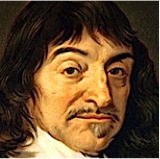
Descartes (René Descartes)
1596 – 1650 CE
Though remaining a Catholic, solidifying the dualistic view in Western thought as well as "Cogito ergo sum" belief in a separate self; Descartes emphasized methodic doubt and the impossibility of externally based intellectual certainty undermining faith in belief and Church doctrine. This sparked a thought revolution that created the modern era. He developed analytic geometry (using x, y, and z for unknowns) and using superscripts for powers or exponents, discovered the law of reflection, and the basis for the development of calculus. Known as the “father of modern philosophy,” he changed the course of Western philosophy and his influence continues to this day.
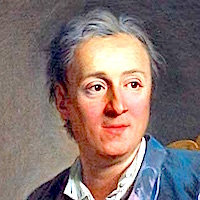
Diderot
1713 – 1784 CE
Philosopher, art critic, scientist, and writer; Diderot was imprisoned in solitary confinement for his philosophical views and mainly only known for his plays and encyclopedia during his lifetime. His rival Rousseau though believed posterity would give him the same respect as Aristotle and Plato and he was later admired by Goethe, Schiller, Balzac, Zola, and Schopenhauer. He was Karl Marx’s favorite prose writer and Comte called him the “foremost intellectual of an exciting age.” He worked on the Encyclopédie as a way of giving power to the common person and emphasized religious tolerance, freedom of thought, the value of science, and—threatening the French aristocracy—maintained that the main purpose of government should be benefiting the common people.
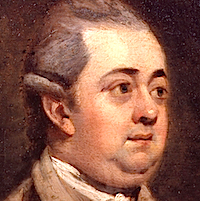
Edward Gibbon
1737 – 1794 CE
One of history’s most important historians, Gibbon made groundbreaking contributions to our understanding of not only the Decline and Fall of the Roman Empire but to the factors that help or hinder the rise and fall of all countries, governments, and civilization itself. From an objective perspective that appreciated the civilizing influence of religion while maintaining a skeptical, non-believing openness; he examined the impact of Christianity and organized religion on a free. healthy, diverse society. His conclusion was that while they addressed deep psychological needs, they easily become subservient to political power and their main influence undermined the evolution and establishment of a sane and just society.
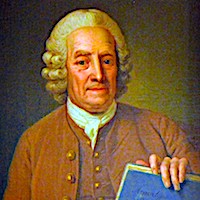
Emanuel Swedenborg
1688 – 1772 CE
Scientist, mystic, influential philosopher
A scientist, philosopher, theologian, inventor, and mystic; Swedenborg began his career as a genius-level scientist and later—detesting the materialism of his academic life—experienced visions and became a highly influential and mystical theologian. He was the first to identify nerve cells, identify the brain's cortex, and pioneered many discoveries in magnetism, phosphorescence, and brain function. His mystical visions described visits to heaven and hell, conversations with spirits from the moon, the planets in our solar system as well as with those from planets further away. His influence spread throughout Europe and into modern times through figures like William Blake, Coleridge, Emerson, Browning, and several Christian denominations.

Francis Bacon
1561 – 1626 CE
“Father of the scientific method,” Lord Chancellor of England, orator, jurist, and philosopher; Francis Bacon represents a huge step in the evolution of consciousness but not before indulging in a sybaritic lifestyle, being charged with 23 cases of corruption, being banned from Parliament and imprisoned in the Tower of London. In his ex-con life, he undermined the strength of religion, railed against tradition and authority, became “the most powerful and influential intellect of his time,” warned of the rich getting too rich as a cause of social disease and revolt, the likelihood of new inventions causing more harm than help, and championed the rise of reason and science that brought about our modern world.
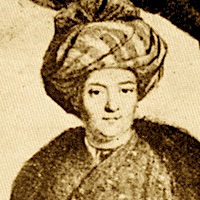
François Pétis de la Croix
1653 – 1713 CE
Early and influential orientalist
Translator, orientalist, interpreter, diplomat, and extensive traveler; Pétis de la Croix knew and spoke Arabic, Persian and Turkish. This led him into pioneering oriental studies of Sufism, the Masnavi Philosopher's stone, and the Muslim Qur'an. Much of his work however needed to be discrete and unpublished because his era was constrained by Catholic censorship, the witch craze, and extreme penalties for unorthodoxy. His influence did, however, inspire other works including Carlo Gozzi's The King Stag and Turandot. Benjamin Franklin popularized his publication of Genghis Khan's biography which became an influence on Thomas Jefferson and his Virginia Statute for Religious Freedom.
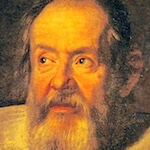
Galileo
1564 – 1642 CE
Arrested by the Inquisition for the last 9 years of his life but called by Einstein “the father of modern science;” books banned by the Catholic Church but called by Stephen Hawking responsible for the birth of modern science; condemned and persecuted by conservative contemporaries but called by Grotius “the greatest mind of all time;” Galileo – though living in a time when “heretics” were burned at the stake – raised the status of science, with his telescope designs demonstrated the universe’s immensity, and helped science separate from both philosophy and religion.
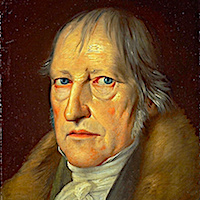
Georg Hegel (Wilhelm Friedrich)
1770 – 1831 CE
Dialectical Philosopher
influential philosopher, developer of "absolute idealism," and political theorist; Hegel worked to integrate history, religion, and art into his philosophy. This led to an integration of dualisms and an amplification of Fichte's thesis-antithesis-synthesis triad. His methods became deeply influential on both contemporary and later schools and thought leaders—even for those who strongly disagreed with his philosophy like Kierkegaard, Marx and Engels—existentialism, Historical materialism, and British Idealism. His writings—rejected and banned by both right wing and left wing politicians—became an incipient influence on many or most of the philosophical schools that came after him: Marxism, phenomenology, German existentialism, and even psychoanalysis
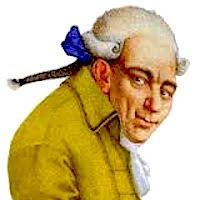
Georg Christoph Lichtenberg
1742 – 1799 CE
One of history’s best aphorists
Youngest of 17 children, scientist, professor of physics, satirist, and hunchback; Lichtenberg had a major influence on the culture of his times that extends into the modern world. He discovered tree-like electrical patterns now called Lichtenberg figures or fractals, the basic principles used now for copy machine technology, a “Compass of Motives” praised by Freud and also standardized the paper sizes now used in most of the world. Considered one of history’s best aphorists, he was read and admired by wisdom lineage holders like Arthur Schopenhauer, Friedrich Nietzsche, Sigmund Freud, Leo Tolstoy, and even Chinese scholars like Qian Zhongshu.

George Mason
1725 – 1792 CE
First American abolitionist, founding father, and Constitutional savior
American Founding Father, author and primary advocate for the original Bill of Rights, George Washington friend and neighbor, and “the first known abolitionist”; George Mason helped create the American political foundation. Although he wrote many of the clauses and points in the Constitution, he was one of only 3 delegates who refused to sign it because of it sanctioning slavery. Recognizing defects in the Constitution and the inevitable need to change it, he became instrumental in bringing into the constitution provisions for changing it (Amendments) and for adding new states. This made it easy to make changes without violence while creating a strong foundation for the trajectory that became a transoceanic federal republic. The primary force for including articles of impeachment into the Constitution, he wrote the phrase, “other high crimes and misdemeanors.” Because he remained a contrarian and because most of his papers were lost in fire, history doesn’t remember him well and he became "a prophet without honor in his own country.” The results of his efforts, however, brilliantly support modern political freedoms.
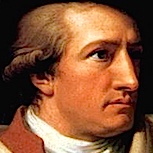
Goethe, Johann Wolfgang von
1749 – 1832 CE
Though a literary celebrity at 25 and most well known for his novels and poems, Goethe was also a natural philosopher, diplomat, civil servant, geologist, and scientist who developed a theory of color, inspired Tesla’s discovery of alternating current and whose early work on evolution influenced Charles Darwin. A freethinker who blended Christianity with pantheism, humanism, and other esoteric traditions, he became a major influence on Hegel, Schopenhauer, Kierkegaard, Nietzsche, Hesse and Jung. He authored some of the greatest novels ever written and his poems were set to music by Mozart, Beethoven, Schubert, Brahms, Liszt and many others. Continuously creating for 82 years, his wisdom deepened and merged into a culture we take for granted today.
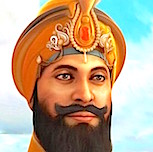
Guru Gobind Singh ਗੁਰੂ ਗੋਬਿੰਦ ਸਿੰਘ
1666 – 1708 CE
Philosopher, poet, spiritual master, warrior, and last living Sikh Guru; his father was beheaded for refusing conversion to Islam and Guru Gobind Singh became Sikh leader when 9 years old. He introduced the Five Ks – the articles of faith that Sikhs always wear, founded the Khalasa warrior community, wrote important texts, and inspired his tradition to always stand up to tyranny and injustice. A great warrior who warned against aggression justifying it only as a last resort, he was betrayed by attacking Hindus but helped by loyal Muslims. Escaping this and other traps, he helped a new prince become emperor giving the Sikhs political support and transferred the succession on to a Holy Book instead of a personal guru.
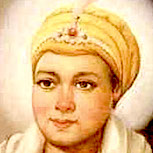
Guru Har Krishan ਗੁਰੂ ਹਰਿ ਕ੍ਰਿਸ਼ਨ (the “Child Guru”)
1656 – 1664 CE
Eighth and at 5 years old, youngest to become one of the 10 Sikh Gurus, Guru Har Krishan died when only eight years old. Chosen by his father because his older brother was in collusion with the Moghal Empire and because he had a soft heart, his youth didn’t seem to diminish his understanding, wisdom, or compassion. It was said about him, “The early morning sun looks small in size, but its light is everywhere.” During a smallpox epidemic, he helped take care of patients from different communities, religions, and castes; caught smallpox himself and died less than 2.5 years after securing his place in Sikh history.
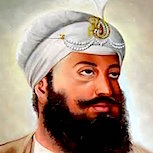
Guru Har Rai Ji ਗੁਰੂ ਹਰਿ ਰਾਇ
1630 – 1661 CE
A sensitive child disturbed when his robe accidentally hurt plants when he walked by, this seventh of the Sikh Ten Gurus remained a man of peace but continued the military tradition of his predecessor and kept over 2000 mounted soldiers at all times. He followed in the Sun Tzu tradition and won battles with strategy rather than aggression and violence. He stopped and prevented corruption, set up a medical research center, and established an Ayurvedic hospital. Herbs from these centers cured a serious and what was thought an incurable medical condition of the Mughal emperor’s son.
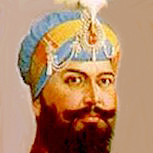
Guru Hargobind ਗੁਰੂ ਹਰਿ ਗੋਬਿੰਦ (Saccha Badshah ("True Emperor"))
1595 – 1644 CE
Founder of Kiratpur, builder of the Akal Takht, liberator of Hargobindpur, sixth and longest reigning Sikh guru, Guru Hargobind introduced weapons and martial arts into the Sikh tradition and in an effort to defend freedom of religion and defend against Islamic persecution, became the first Sikh Guru to engage in warfare. Persecuted, imprisoned and poisoned; he overcame obstacles, defeated superior Moghul forces, and united the practical and the spiritual, defense and compassion helping to establish the independence of Sikhs as their own political and religious force.
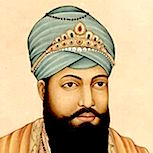
Guru Tegh Bahadur ਗੁਰੂ ਤੇਗ਼ ਬਹਾਦੁਰ
1621 – 1675 CE
Publicly beheaded by the Mughal Emperor after being tortured for many weeks because of refusing to convert to Islam, Tegh Bahadur’s father predicted when he was born, “He shall protect the weak and relieve their distress.” He sacrificed himself to protect the Hindus and Sikhs of Kashmir who were being persecuted and forced to convert to Islam and this event further condensed the Sikh community’s resolve to resist Muslim rule. He became a symbol for religious freedom and the protection of human rights while turning the tide of history for Sikhs, India and the Panjab setting the stage for a government based on social justice without prejudice based on color, caste, or religion.

Hakuin Ekaku 白隠 慧鶴
1686 – 1769 CE
A monk at just 15, Hakuin soon became dissatisfied with the teachings available, left the monastery, began wandering and met a Taoist hermit, Hakuyu. One of the most influential figures in the Zen tradition, Hakuin included teachings from many different traditions and brought these to the illiterate. Although not beginning to paint until almost 60, he’s now recognized as one of the greatest Zen painters with works displayed in some of the world's leading museums. In a famous story, when unjustly accused of fathering a child and also when the mother later confessed to the lie and the child was taken away from him, his only comment was “Is that so?”
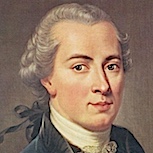
Immanuel Kant
1724 – 1804 CE
Credited with creating a paradigm shift responsible for much of modern philosophy, psychology, metaphysics, sociology, linguistics, and political theory; Kant was a quiet and introverted philosopher whose daily schedule was so precise that neighbors were said to set their watches by it. Child of the Enlightenment and father of the Romantic movement, he barely traveled but became “the central figure of modern philosophy,” inspired the American transcendentalism of Emerson and Thoreau, and a profound influence on many important thinkers like Hegel, Novalis, G. K. Chesterton, Schopenhauer, Bertrand Russell, Max Weber, Jean Piaget, and Noam Chomsky.
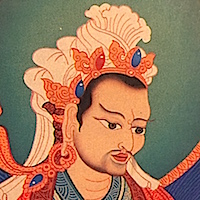
Indrabhūti ཨིནྡྲ་བྷཱུ་ཏི། ("The Enlightened Siddha-King")
892 CE –
Mahasiddha #42
Indrabhuti ཨིནྡྲ་བྷཱུ་ཏི། The Enlightened Siddha-King (late 9th century)
“The first tantrika,” archetypal tantric king, and inspiration for several tantric lineages; Indrabhuti for political reasons pledged his Buddhist sister Laksminkara in marriage to the prince of a neighboring Hindu kingdom. She went to live with the neighboring prince but soon became disillusioned with the materialism, superstition, and decadence of her new country. Late one night she fled the palace and found a cave in the mountains where she lived and practiced meditation, attained enlightenment and scandalously started teaching untouchables. This greatly upset the Hindu king but inspired Indrabhuti to do the same and leave the comfort of palace life to devote himself completely to his spiritual path. He rejected however a path that rejected sensual pleasure and sex and practiced the Guhyasamaja father-tantra in the Anuyoga Dzogchen lineage. Mahasiddha #42
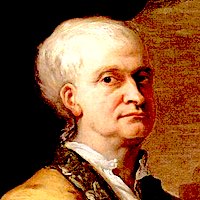
Isaac Newton
1642 – 1726 CE
Natural philosopher, mathematician, astronomer, theologian, author and physicist, and one of the most influential scientists of all time; Newton built the first practical telescope, made critical discoveries in the field of optics, developed calculus, made numerous scientific discoveries and also studied alchemy. He established science over faith as the most profound influence on modern thought and his discovery of gravitation revolutionized the study of astronomy. He established the laws of motion and mechanics that became a platform for the modern miracles of science. Exemplifying Gracian’s dictum, “All giants are really dwarfs,” stories of Newton’s absentmindedness proliferate. Asked to boil an egg for 3 minutes, he put his watch in the water and stared at the eggs. He would do things like go upstairs to change for a formal dinner but instead get undressed and go to bed. Voltaire considered him one of the greatest men who have ever lived.
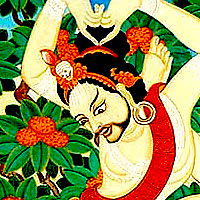
Jālandhara ཛཱ་ལནྡྷ་ར་པ། ("The Ḍākinī's Chosen One")
888 CE –
Mahasiddha #46
Jalandhara ཛཱ་ལནྡྷ་ར་པ། “The Ḍākinī's Chosen One” (late 9th century)
Another wealthy and privileged brahmin who saw through the materialistic values of his culture and renounced it to search for a more meaningful life, Jalandhara left everything to live in a cremation ground meditating. Going on to become an important mother-tantra siddha, one of the nine naths, and guru to 10 of the 84 Mahasiddhas; he founded one of the two main nath lineages (A Hindu tradition favored by Kabir that blended Shaivism, Buddhism and Yoga traditions using Hatha Yoga to transform the physical into awakened perception of “absolute reality”), taught practices that unify the male and female forces, dissolve the subject/object dichotomy, and open the non-dual doors of perception. Mahasiddha #46
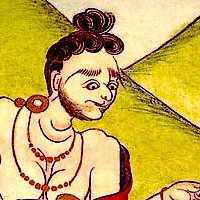
Jayānanda ཛ་ཡཱ་ནནྡ།། ("Crow Master")
11th - 12th century
Mahasiddha #58
A Tantric Buddhist master practicing in Bengal during a time when Buddhism was illegal, Jayananda was exposed by a jealous neighbor and imprisoned by the anti-Buddhist king. Before being captured though, he had befriended and fed a big flock of crows. In Tibetan culture crows are considered bad omens, capable of bringing great harm, and feared. But in a symbol of tantric transformation, Jayananda had made the crows allies. Then—metaphorically as crows or symbolically as an inclusion of the negative—the king was upended, reduced to hiding under his thrown, and as a consequence became a great and influential siddha himself. Mahasiddha #58
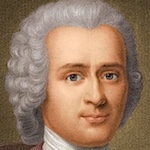
Jean-Jacques Rousseau
1712 – 1778 CE
Motherless from almost birth, abandoned by his father, poor in health and income; Rousseau wandered on his own for 12 years challenging the status quo and rejected by society as a dangerous rebel or insane criminal. Stoned by neighbors when he went for walks, harassed by police, and expelled from countries; he went on to become “the finest thinker of his time,” a main source for Jefferson and the Declaration of Independence, a cause of the French Aid for the American Revolution, and a seminal influence on Tolstoy, Wordsworth, Thoreau, Byron, Shelly, Keats, Schopenhauer, Kant, Goethe, and Marx. He transformed education, inspired the French Revolution and the Romantic Movement, wrote political and social books that became cornerstones of modern thought.
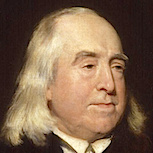
Jeremy Bentham
1748 – 1832 CE
Jeremy Bentham (1748 - 1832)
“The first patron saint of animal rights,” founder of modern utilitarianism, philosopher, and social reformer; Bentham defined “the greatest happiness of the greatest number” as a political strategy and brought the idea of welfare into modern government. A strong voice for individual and economic freedom, he worked hard to end slavery, the death penalty, physical punishment, and was the first in England to argue for decriminalizing homosexuality. He promoted equal rights for women, universal education, the separation of church and state, and animal rights. His secretary was John Stuart Mill’s father and together they tested the limits of education.
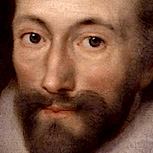
John Donne
1572 – 1631 CE
Leading and inventive metaphysical poet, cleric, politician, womanizer, and one of the greatest love poets; John Donne brought a distinctive style filled with paradoxes and ironies to poems ranging in topic from deeply religious to vibrantly erotic. Fired and imprisoned because of a secret marriage, he lived in poverty for many years while devoting his attention to the idea of “true religion” beyond the superficiality of undigested concepts and superstitious belief. A strong influence on W. B. Yeats, Hemingway, T. S. Eliot, Dylan Thomas, Coleridge, W. H. Auden, Van Morrison, Robert Oppenheimer; his impact continues today with examples like the movie The Incredibles, that took its Nomanisan Island from his famous saying, "No man is an island.”
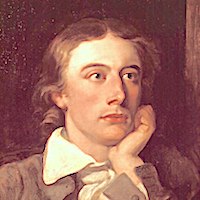
John Keats
1795 – 1821 CE
Writer of "poems as immortal as English"
One of the most popular poets of all time, Keats—in just 25 years of life—wrote what Will Durant called, “poems as immortal as English, and more perfect than Shakespeare.” Borges said that reading him was the most influential literary experience of his life, Tennyson called him the greatest poet of the 19th century, and Shelley wrote that his death was a national tragedy. He studied medicine and received a license to practice as a doctor and surgeon but chose the pure poverty of writing over financial security and social respect. During his lifetime, he published three volumes of poetry but during that time, sold only c. 200 copies. And far from foreseeing his future popularity, shortly before dying wrote, "I have left no immortal work behind me—nothing to make my friends proud of my memory.” His fame quickly grew however and his legend continues today in universities, movies, and books by authors including Dan Simmons, Tim Powers, and Julie Bozza.
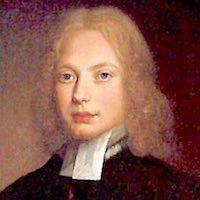
Jonathan Swift
1667 – 1745 CE
"Foremost prose satirist in the English language"
Poet, cleric, satirist, and political essayist; Swift became the most popular Irish author. His book, Gulliver’s Travels became the most popular work of Irish literature in international libraries. Although George Orwell said he disagreed with him on almost every issue, he listed him as one of his most-admired writers. Deeply involved in politics, he published many powerfully influential political pamphlets—all so provacative he had to publish anonymously or use a pseudonym.
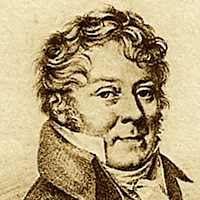
Jouy, Victor-Joseph Étienne de
1764 – 1846 CE
French Dramatist
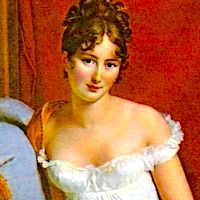
Juliette Récamier (Jeanne-Françoise Julie Adélaïde Récamier)
1777 – 1849 CE
Prototype of beauty, grace, charm, and loyal integrity
Icon of neoclassicism, prototype of beauty and grace who with “a sensuous pliancy stirred a hundred males without any known harm to her virginity,” lover of literature, patron of artists and intellectuals; Juliette led an interesting life that purportedly included marrying her father when she was 15, being exiled from Paris by Napoleon for her liberal views, losing a great fortune but remaining dignified and influential, and turning down a marriage proposal from a Prussian Prince who she deeply loved. Sex is a kind of currency that women have used throughout the ages to get what they want—food, affection, wealth, power, fame, security. Unlike money though that grows with time and interest, this particular kind of currency normally diminishes with age. Juliette however, became so adept at using this natural resource that it continued working for her in spite of old age and even blindness.
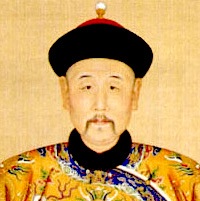
Kāngxī 康熙帝
1654 – 1722 CE
Longest-ruling Chinese emperor, consolidator of the Qing dynasty during the transition from the Ming, first Chinese emperor to play a western musical instrument, inventor of a Chinese calendar, and supporter of bringing Western technology into China; Kangxi administered the normal political and social emperor activities engaging in war, law, economics and having 56 children; but also, he thought deeply about life and realization. A skilled politician who could combine power, flexibility and tact with his Taoist/Buddhist tradition; he traveled extensively, rarely stopped talking communicating and listening to people everywhere, and brought an exceptional openness to his autobiography exposing his faults, uncertainties, and disillusionments as well as his accomplishments and insights.
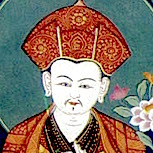
Karma Chagme Rinpoche I ཀརྨ་ཆགས་མེད་རཱ་ག་ཨ་སྱས།
1613 – 1678 CE
Considered a more modern-day mahasiddha, an accomplished scholar, and prolific writer who almost became the 9th Karmapa; at the age of 6, Karma Chagme began studying with his tantric siddha father, Pema Wangdrak, and learned magic ceremonies, geomancy, “white” and “black” astrology. He continued studying with the most realized Nyingma and Kagyu masters of his day, learned the entire cycle of Nyingma teachings, and became famous throughout Tibet while traveling for 1.5 years with the 7th Karmapa. He became a master in both the Mahamudra and Dzogchen traditions, devoted himself to Sukhāvatī practice, and became an emanation of "Red Avalokiteśvara.” His lineage continues and the current tülku lives today in the Kathmandu Valley.
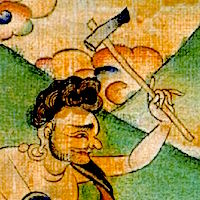
Koṭālipa ཀོ་ཊཱ་ལི་པ། ("The Peasant Guru")
1084 CE –
Mahasiddha #44
Kotalipa ཀོ་ཊཱ་ལི་པ། “The Peasant Guru” (2nd half of eleventh century)
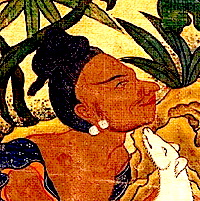
Kukkuripa ཀུ་ཀྐུ་རི་པ། ("The Dog Lover")
915 CE –
Mahasiddha #34
Kukkuripa “The Dog King” ཀུ་ཀྐུ་རི་པ། (10th century CE)
A wandering ascetic, Kukkuripa found and adopted a starving dog brought it back with him to the cave where he lived and meditated. Kukkuripa’s meditation practice took him to pleasurable, psychological god realms but memories of his dog connected him back to the real world where he saw his loyal dog sad, thin, and starving. Spurning the luxury, comfort and extravagance; he returned to the cold, dark, very uncomfortable cave out of compassion for the dog. The dog then became his teacher blending his mind-stream with the deepest insight of all the Buddhas. Naropa sent Marpa to study with him and he became one of Marpa’s most important teachers, famous for his songs of realization, and a “patron saint” for all the downtrodden and oppressed. Mahasiddha #34
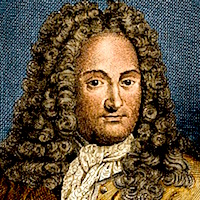
Leibniz (Gottfried Wilhelm (von) Leibniz)
1646 – 1716 CE
Polymath, philosopher, mathematician, scientist, engineer, lawyer, university president and “best-of-all-possible-worlds man”; Leibniz developed calculus, invented components that became the first calculator, and refined the binary number system that became the foundation for digital computers. His writings on law and politics and call for a European confederation inaugurated the European Union. One of the first major European intellectuals to study Chinese culture and philosophy, he read Confucius, studied the I Ching, and integrated Chinese wisdom into both his philosophy and physics. It led to his “law of continuity” that linked the nature of everyone—plants, humans, animals, both the organic and inorganic worlds—, created a theoretical foundation for evolution, and envisioned a non-dual calculus of understanding reality.
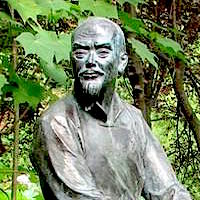
Lǐ Yú 李漁 (Li Liweng)
1610 – 1680 CE
“Artist of Living, playwright, actor, director, poet, novelist and "writer-entrepreneur;” Li Yu dropped out of the imperial exam process and instead of becoming an official traveled through China with his own acting troupe writing plays, acting and directing. A daring and creative writer described by biographers as the “most versatile and enterprising writer of his time,” he wrote the Carnal Prayer Mat which became a Chinese erotic classic, Errors caused by the Kite that endures as a Chinese opera favorite, The Arts of Living that continues its influence on practical wisdom, and translated many popular essays.

Lin Mo Niang 林默娘
970 CE –
Lin Mo Niang (silent girl) 林默娘 akaMa Zhou, Mazu, Matsu, Tian Hou (c. 970)
"Empress of Heaven,”patron of seafarers, Confucian, Taoist and Buddhist adept, rainmaker, and Fujianese shamaness from an impoverished and uneducated fishing village where no one could read; Lin Mo Niang lived during a time of mass migrations from China’s north when refugees blended their culture with her local one. Most popular today in Taiwan but banned in Mainland China, her following called Mazuism has over 1500 temples in 26 countries, and statures as high as 139’ (42.3 meters). Equated with Guan
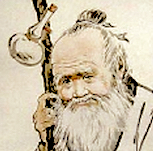
Liu Yiming 刘一明 (Liu I-ming)
1734 – 1821 CE
11th-generation Shanxi Dragon GateTaoist master, doctor, merchant, coolie, builder and main representative of the Neidan school of Internal Alchemy; Liu Yiming alternated travel, seclusion, and intense practice during his early life and then settled into teaching and writing, restoring temples, and helping poor families. He taught the unity of the ”Three Teachings" (Taoism, Buddhism, and Confucianism) and how they complement, enrich, and support each other. He described Lao Tzu’s “non-doing” (wuwei 無為) as the highest form, methods of Confucius as more practical for most people and then the Buddha’s “doing first and then non-doing” as more practical for most people.
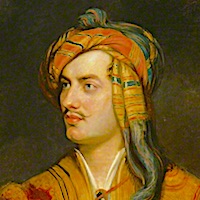
Lord Byron (George Gordon Byron)
1788 – 1824 CE
The first rock-star style celebrity
One of the best English poets, Greek national hero, first modern "rock-star" celebrity, revolutionary, politician, and major Romanticism influence; Lord Byron became renowned for a flamboyant bisexuality during a time when this was highly illegal. A major influence in the Romantic movement and close confidant of Percy Bysshe Shelley, he was known as "mad, bad, and dangerous to know." During his lifetime considered the greatest poet in the world; his fame continues throughout the world in 36 different Byron Societies, in over 40 operas, in his poetry set to music by Beethoven, Schubert, Schumann, Berlioz; and through the legacy of his daughter, a founding force in the first computer programming efforts.
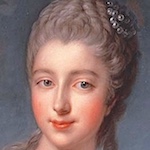
Madame de Pompadour (Jeanne Antoinette Poisson)
1721 – 1764 CE
Called by Will Durant “One of the most remarkable women in history” as “the most cultured woman of her time” and by Voltaire “one of us,” Madame de Pompadour as chief mistress of Louis XV became a brilliant governor of France, protector of Voltaire, savior of Diderot’s Encyclopedie, patron to Rousseau, Montesquieu, and the “Age of Enlightenment” in general. Excommunicated by the Catholic Church and the “Queen of Rococo,” she supported philosophy, literature, music and art as porcelains, hair styles, dresses, chairs, ribbons, beds, and dishes were named after her. Beautiful, charming, and intelligent, she led France to its highest artistic influence on European civilization as well as making her country much stronger economically and politically.
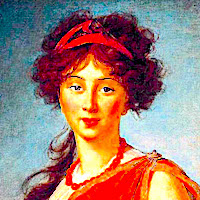
Madame de Staël (Anne Louise Germaine de Staël-Holstein)
1766 – 1817 CE
"The greatest woman of her time"
Powerful political advocate, “first woman of Europe,” fascinating conversationalist, "Napoleon's Nemesis," and preeminent authoress of the time; Madame de Staël inspired and encouraged the political opposition to the Reign of Terror and later to Napoleon and was banished for her efforts. A potent influence on European Romanticism and persuasive advocated of liberty, she sponsored and led salons, wrote novels, and important speeches. Praised by Tolstoy, her political influence advanced representative government, constitutionalism, and women’s rights. Her opposition to dictatorship brought her into intense conflict with Napoleon and she was considered—along with England and Russia—one of the 3 main forces against him. Struggling with opium addiction and suicidal depression, a close friendship with Juliette Récamier enabled her to continue and become—in Macaulay’s phrase—“the greatest woman of her time.”
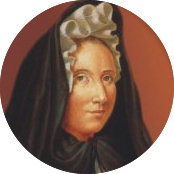
Madame Guyon Jeanne-Marie Bouvier de la Motte-Guyon
1648 – 1717 CE
Madame Guyon, Jeanne-Marie Bouvier de la Motte-Guyon (1648 - 1717)
French mystic, key advocate of Quietism, strong influence on the Quakers and other anti-materialistic Christian traditions; Madame Guyon was widowed at 28 having already borne 5 children. Advocating the ‘prayer of quiet’ and interior realization - teachings of Teresa of Avila and John of the Cross - she ran afoul of the Roman Catholic Church’s emphasis on believing in only external authority, was branded a heretic, and imprisoned in the Bastille for 7 years. Praying all the time and finding her God in every detail of life, she exemplified belief in basic goodness, the sacredness of all experience, and a genuine, European, Wu Wei tradition.
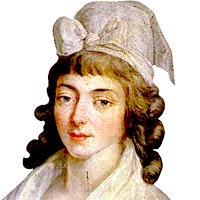
Madame Roland (Marie-Jeanne Phlippon)
1754 – 1793 CE
Revolutionary heroine
Sole survivor of her mother’s 8 pregnancies, Madame Roland became a revolutionary heroine and one of the mainspring influences of the French Revolution. A student of Plutarch, Voltaire, and Rousseau; her clear intelligence, wisdom and drive made her the equal to any of the contemporary politicians proving the capabilities of women in the political realm. Her drive, focus, and radiant intelligence made her the equal in accomplishments of any contemporary male politician. Sacrificing her life for her political beliefs, she died by guillotine during the French Reign of Terror with the famous words, “Oh Liberty, what crimes are committed in thy name!”. Her memoirs written in prison became a testament to the possibility of balancing freedom and equality as well as evolving potentials for a woman’s place politics.
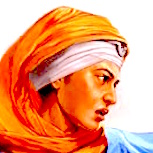
Mai Bhago Kaur
late 1600s - mid 1700s
Listed by the BBC as one of the 3 most badass women in history, the first Punjab woman to fight on a battlefield, and a Sikh saint; Mai Bhago was ingenious and heroic in battle when extremely outnumbered fighting against a large Mughal army. She inspired the male warriors with her bravery, and - dressed as a man - became Guru Gobind Singh’s body guard until he died in 1708. She tirelessly fought against the caste system, tyranny, and prejudice but after being injured in battle, she withdrew into a life of meditation and lived to a peaceful old age. Her spear is still honored in a Sikh museum.
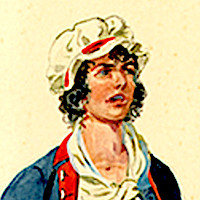
Margaret Cochran Corbin
1751 – 1800 CE
Early American hero
A gruff, smoking, antagonistic camp follower, nurse, and American hero; Margaret Corbin became the first U.S. woman to receive a military service pension. When only 5 years old, her father was killed when their home was raided by Native Americans and her mother taken never to return. This began a difficult life presenting numerous challenges that she enthusiastically and quickly met. In order to join her husband in battle, she dressed like a man and accompanied him to his posts. She took his place firing a cannon when he was killed and continued until she was too injured to continue and lost use of her left arm for life. Her fellow-soldiers called her “Captain Molly” and praised her cannon-firing skills. The highest-honored woman of the Revolutionary War, she was buried with full honors in the West Point cemetery and a monument was built for her.
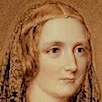
Mary Shelley
1797 – 1851 CE
Caught between her famous father’s Enlightenment political theories (William Godwin) , her famous husband’s allegiance to the ethos of Romanticism (Percy), and her famous mother (Mary Wollstonecraft) who is considered a founder of feminist philosophy; Shelley’s work promoted Taoist-like values emphasizing collaboration over competition, compassion over personal gain, the true civilizing role of the feminine principle. Her novel, Frankenstein foreshadowed our modern era and how easily we can become enslaved and manipulated by our inventions. A voice against superstition and dogma, her books became a beacon for the era of Romanticism, liberal politics, and gender equality.
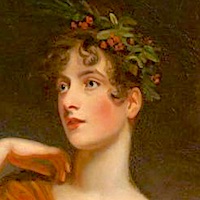
Mary Wollstonecraft
1759 – 1797 CE
Seminal feminist
Founding feminist philosopher, wife of anarchist forefather William Godwin, and mother of famous writer Mary Shelley; Wollstonecraft was one of the first in the West to advocate for women’t equality and rights. She wrote and spoke against the prevailing view that women are inferior to men and argued that women only appear inferior because of a lack of education and opportunity. Although stridently criticized by her contemporary writers and for 100 years by most believing ‘no self-respecting woman would read her work,’ she was a foundational influence on Jane Austen and scholars have traced her ideas in Pride and Prejudice, Sense and Sensibility, and as a character in Persuasion. Her influence expanded with rise of feminism in the 1960s and 1970s and continues today.

Matsuo Bashō 松尾 芭蕉
1644 – 1694 CE
The most famous poet of the Edo period in Japan and still internationally renowned and recognized as the greatest master of haiku, Bashō left his samurai status, urban fame and fortune to wander throughout Japan writing poetry. During periods of history in Japan, criticizing his poetry was considered blasphemous and many of his poems are reproduced on monuments. Some scholars believe he invented haiku and his verse greatly influenced Ezra Pound, the Imagists, and Beat Generation poets.
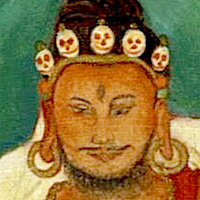
Mekopa མེ་ཀོ་པ། ("Guru Dread-Stare")
1050 CE –
Mahasiddha #43
Mekopa, མེ་ཀོ་པ། Guru Dread-Stare (11th century)
Always cheerful and kind Bengali food merchant taken as a student by a yogin customer, Mekopa saw into the vastness of his own mind, the uselessness of chasing desires, and harmfulness of action based on duality. His realization led him far beyond the limits of status quo, conventional social standards and behavior; into a lifestyle unbound by concern for people’s opinion, wandering about a cremation ground “like a wild animal” and into towns like a mad saint with dreadful, staring eyes. Mahasiddha #43
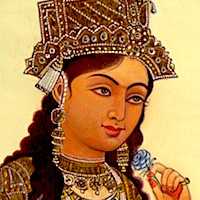
Mumtaz Mahal ممتاز محل
1593 – 1631 CE
Inspiration for building the Taj Mahal and wife of Genghis Khan descendent, emperor Shah Jahan; Mumtaz Mahal helped guide the nation while having 14 children in 19 years. She influenced her husband to forgive enemies, commute death sentences, and to help the poor. She also patronized artists, poets, theologians, and scholars often even providing pensions to their daughters. The Taj Mahal built as a tomb for her and described as one of the Wonders of the World and "the most beautiful building ever erected" was built facing south with the shape of a Mongul yurt.
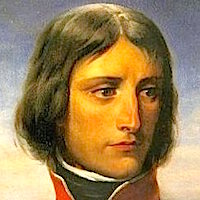
Napoleon Bonaparte
1769 – 1821 CE
Napoleon Bonaparte (1769 – 1821)
Called by historians everything from a megalomaniac worse than Hitler to an enlightened monarch responsible for creating some of the best political and legal systems in the modern world; Napoleon became a French general when only 24, a national hero at 26, and – attributing his success to meditation - one of the most successful commanders in all of history. Father of the European common market, his Napoleonic Code became a foundation for legal systems used today by 1/4 of the world's population, 70+ countries in Europe, the Americas and Africa. Inspired by the liberal vision of the French Revolution, he helped end feudalism, encouraged science and the arts, institutionalized equality before the law, property and religious rights, meritocracy, and our modern educational system. Excommunicated by the Catholic Church, he abolished the Spanish Inquisition and emancipated from ghettos Jews and Protestants in Catholic countries, Catholics and Jews in Protestant countries.

Novalis
1772 – 1831 CE
Poet, philosopher, mystic and civil engineer, Novalis (Georg Philipp Friedrich Freiherr von Hardenberg) only lived 28 years but in that short time still managed to condense his insight and poetic wisdom influencing Emerson, Hermann Hesse, Rilke, C.S. Lewis, Borges, and through George MacDonald, Tolkien, Mark Twain, GK Chesterton, Madeleine L'Engle. the Inklings, and the entire fantasy genre in literature.
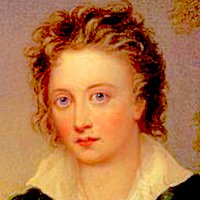
Percy Bysshe Shelley
1792 – 1822 CE
Another culture-transforming sage not recognized or appreciated during his lifetime, Shelley became regarded as one of the English language’s premier poets and transformers of political and social culture. A major influence on Thoreau's views on non-violent protest, political action, and his book, Civil Disobedience; he also inspired Karl Marx’s economic theories, Leo Tolstoy’s approach to non-violent resistance, Mahatma Gandhi, Martin Luther King Jr., and the world’s various Civil Rights Movements. During his 29-year life, most publishers became too afraid of being arrested to publish his work and his readership remained small and underground. From his tiny seed, however, our modern, humanistic culture sprouted.
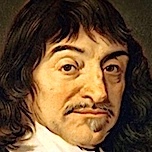
René Descartes
1596 – 1650 CE
Though remaining a Catholic, solidifying the dualistic view in Western thought as well as “Cogito ergo sum” belief in a separate self; Descartes emphasized methodic doubt and the impossibility of externally based intellectual certainty undermining faith in belief and Church doctrine. This sparked a thought revolution that created the modern era. He developed analytic geometry (using x, y, and z for unknowns) and using superscripts for powers or exponents, discovered the law of reflection, and the basis for the development of calculus. Known as the “father of modern philosophy,” he changed the course of Western philosophy and his influence continues to this day.
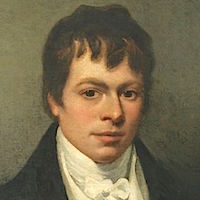
Robert Burns
1759 – 1796 CE
Tenant farmer, tax collector, "The Greatest Scot of all time,” people's poet of Russia, political radical, and writer of one of the wold’s most popular songs (Auld Lang Syne); Burns celebrated everyday life, farming, culture, religious practices, and love. Father of at least 13 children (most born out of wedlock) with at least 5 different women, his affairs were unencumbered even by loves who inspired some of the best love songs ever written. Far beyond it’s place as favorite US New Year’s Eve song, Auld Lang Syne is sung all over the world, was the Korean and Maldive national anthem, popular graduation song in Japan, and sung by troops in the American Civil War and during World War I.
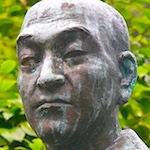
Ryokan 良寛大愚 (Ryōkan Taigu,“The Great Fool”)
1758 – 1758 CE
One of the most popular personalities in all of Japanese history, neither priest or lay person, “unthinkably kind” but strict practitioner, saturated with enlightenment yet calling himself “The Great Fool;” Ryōkan was a scholar, calligrapher, and poet yet spent his time with ordinary people. He took no disciples, gave no sermons, took no positions, and spent his time begging, playing with village children, writing and speaking some of the East’s best poems that bridge the gap between understanding the words and understanding the sense. Non-sectarian, a critic of institutional power and professionalism, and startlingly honest, today Ryōkan is a true Japanese national hero familiar to almost every child and respected by young and old, rich and poor, powerful and humble.
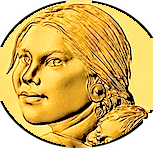
Sacagawea
1788 – 1812 CE
When 12, kidnapped and claimed by a rival tribe after a battle, when 13 won as 2nd wife by a gambling trapper, when 17 hired as guide and translator by the Lewis and Clarke expedition; Sacagawea traveled thousands of difficult miles sometimes surviving on only candles but saving and assuring the expedition’s success while opening communication with many isolated groups and spreading understanding. Immortalized in the names of rivers, mountains, parks, and trails; on a US 1$ coin, in literature, and in music from Phillip Glass to Stevie Wonder; she was considered a hero and taken as an example of strength, independence, and self-worth by the Women’s Suffrage Association.
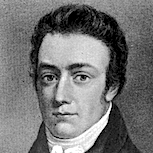
Samuel Taylor Coleridge
1772 – 1834 CE
One of the most influential English poets, co-founder of the Romantic Movement, prominent philosopher, gothic pioneer and leviathan impact on Mary Shelley, William Wordsworth, Thomas Carlyle, Emerson and American transcendentalism; Coleridge paid for his renown with poor health, depression, bipolar disorder, and a lifetime of opium addiction. Rescuing Shakespeare’s play Hamlet from denigration by critics, he established his reputation as aliterary critic. The instigator of "Conversational Poetry,” using common, everyday language to convey deep images and wisdom, he coined many still-used words like soulmate, selfless, pessimism, relativity, narcissism, actualize, and intensify
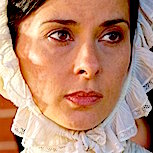
Sarah Grimke
1792 – 1873 CE
Going against her SC Supreme Court chief Justice father who held hundreds of slaves and opposed women’s rights, Sarah supported Abraham Lincoln and her writings fueled and inspired the beginning of the women’s suffrage movement. When she was 5 years old after watching a slave whipping, she tried to leave her state and find a place without slavery. Breaking the law, she taught a slave to read, taught slaves Bible lessons, and against the culture secretly advanced here own "unwomanly” education. One of the first women public speakers in America and under constant criticism and attack, she wrote the first serious essay advocating equality for women and became the first American woman working to end slavery.
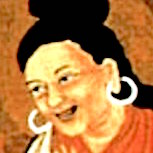
Shabkar Tsokdruk Rangdrol ཞབས་དཀར་ཚོགས་དྲུག་རང་གྲོལ།
1781 – 1851 CE
Prolific writer said to have written over 300 pages per day, famous lama, and student of the Mongolian king Chögyal Ngakgi Wangpo; Shabkar literally means “white feet,” a name given to him because his presence was so inspiration that it wherever he placed his feet became full of virtue and realization. Considered a reincarnation of Milarepa, he spent most of his life in retreats and composed “an ocean of songs.”
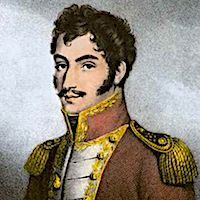
Simon Bolivar Simón Bolívar
1783 – 1830 CE
El Libertador
Major image in Latin American identity, military strategy genius, and liberator from Spanish rule of Venezuela, Bolivia, Colombia, Ecuador, Peru, and Panama; Simón Bolívar became the major hero in the 19th century South American independence movements. Inspired by the idealism of the American and French Revolutions, he fought against factions, created foundations for democracy in Latin America, envisioned and worked toward a kind of United States of South America. These efforts however mainly failed, countries devolved into dictatorships, and Bolivar was almost assassinated. He described these attempts at union a failure and only “plowing the sea.” On the other hand, his legacy remains strong with major monuments to him in the capital cities of Lima, Buenos Aires, Havana, México City, Panama City, Paramaribo, San José, Santo Domingo, Sucre, Algiers, Ankara, Bucharest, London, Minsk, Moscow, New Delhi, Ottawa, Paris, Prague, Port-au-Prince, Rome, Tehran, Vienna, and Washington DC.
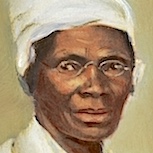
Sojourner Truth (Isabella (“Bell”) Baumfree)
1797 – 1883 CE
Born into slavery and now listed in the “100 Most Significant Americans of All Time,” Sojourner escaped with her infant daughter, went to court trying to get her son back and became the first black woman to win a case like this. She traveled extensively promoting the abolition of slavery, helped recruit black troops during the Civil War and tried to get land grants for freed slaves after the war. A powerful women's rights activist and friend of Susan B. Anthony, she gave one of the most famous speeches on women's rights and is considered a saint by both the Episcopal and Lutheran churches.
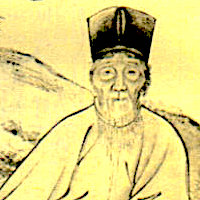
Sun Qifeng 孫奇逢
1583 – 1675 CE
孫奇逢 (1583–1675)
Professor, poet, respected scholar who passed the imperial exams at only 13 years old, and one of the most famous masters of Confucian ethics; Sun Qifeng helped China transition from the Ming to the Ching dynasties. Critical of the Ming control by eunuchs, he followed the neo-Confucian philosophy but emphasized its practicality, the concept of basic goodness, and the importance of nourishing goodness. Often invited to take prestigious governmental offices, he refused preferring a quite life of study. A precursor of—and inspiration for?—Arnold Toynbee, he looked at the rise and fall of dynasties (as well as individual success and failure) through the lens of the I Ching and left a treasury of books including popular commentaries on the Four Books, biographies of 11 famous, Confucian masters, and the history of 146 philosophers and their teachings.
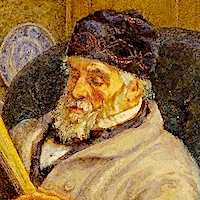
Thomas Carlyle
1795 – 1881 CE
"Great Man” theory of history creator
Historian, philosopher, translator, mathematician, and one of his era’s most influential social commentators; Carlyle developed the “Great Man” theory of history. He postulated and described how the world’s great changes were all caused by the decisions and actions of a very small and elite group of prime movers. He emphasized the essence of heroism as a response to intense challenge and difficulty rather than inherent qualities. In later life, these ego-based theories unfortunately led to a critique of democracy, justifications for fascism, nostalgia for slavery, and support for repressive government. His work in mathematics led to innovative methods still used today and one of his books on the French Revolution inspired Dickens' novel, A Tale of Two Cities.
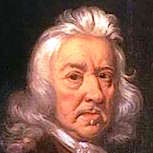
Thomas Hobbes
1588 – 1679 CE
Secretary, student, friend to Francis Bacon; Hobbes established the foundation for most modern political philosophy. Formulating social contract theory, he promoted individual rights, natural equality, government based on the will of the people, only representative government as legitimate, and the freedom to do anything that laws don’t forbid. He described human nature as “self-interested cooperation” and introduced mathematical reasoning to the philosophy of science. Though called “the father of totalitarianism” and fixated on peace and order, his radical shift from religion and belief to applying science for understanding human nature helped undermine that same “order” creating more personal, political freedom.
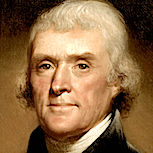
Thomas Jefferson
1743 – 1826 CE
American founding father, main author of the Declaration of Independence, Virginia governor, first Secretary of State, US Vice President and one of America’s greatest presidents; Jefferson negotiated the Louisiana Purchase almost doubling the size of the country and wrote a book considered the most important American one written before 1800. President of the American Philosophical Society, mathematician, architect/designer of the Virginia State Capitol and Monticello, University of Virginia founder, avid horticulturalist and farmer, naturalist deeply interested in birds, inventor of an important new plow design as well as the swivel chair, and speaker of more than 8 languages; he exemplified the ideal of a true Renaissance Man. Although he owned hundreds of slaves, as a young lawyer he defended freedom-seeking slaves, signed an act prohibiting their importation in 1807, and is believed to have secretly “married” and had children with a black woman, Sally Hemings. Always in debt with cash flow problems from continual experiments and pushing on the boundaries of the possible, his creative spirit never died.
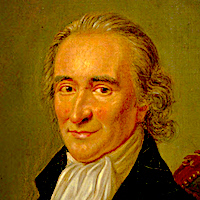
Thomas Paine
1737 – 1809 CE
Fired from his government post in England because of his efforts for the working class and running to escape debtor’s prison, Paine brought a letter of recommendation from Benjamin Franklin to the new world and quickly established himself as a voice for freedom, liberty, women’s rights, prison reform, Newtonian science, and anti-slavery efforts. From a poor family growing up during a time when thousands of small farmers were becoming serf-like factory workers and the gap between super rich and super poor was becoming extreme; he educated himself, became a Founding Father, one of the most essential influences on the Revolutionary War, gave the United States of America it’s name, and wrote the rough draft that Jefferson used to craft the Declaration of Independence. John Adams said that, “Without the pen of Paine, the sword of Washington would have been wielded in vain.” The first to lobby for a Social Security system, his influence extended from American to England, France, South America, and all countries seeking freedom, social justice, and moral equality.
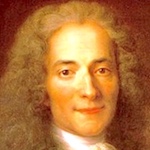
Voltaire, François-Marie Arouet
1694 – 1778 CE
Nemesis to tyrants and fanatics of all styles, powerful fighter for civil rights, separation of church and state, freedom of speech and religion; Voltaire drank up to 72 cups of coffee a day and wrote more than 2,000 books and pamphlets. Admiring Confucian ethics and political theory, his writings inspired the founders of America, the best thinkers of his time, numerous kings, queens and world leaders, millions of people in every generation since. To a large extent we owe to his influence much of the freedoms in the world today; the humane treatment of the insane, sick, and criminal; the number of libraries, schools, and universities for common people. Historian Will Durant wrote, “When we cease to honor Voltaire, we shall be unworthy of freedom.”

William Blake
1757 – 1827 CE
A poet, painter, and songwriter mainly unrecognized during his life and at the time considered mad, Blake is now called “far and away the greatest artist Britain has ever produced” and “a seminal figure in the history of poetry.” Not fully appreciated until more than 200 years after he died, he’s now considered one of the most powerful impacts on twentieth century culture with an enormous influence on Carl Jung, Aldous Huxley, poets like William Butler Yeats and Allen Ginsberg, songwriters like Bob Dylan and Van Morrison. The origin of graphic novels and fantasy art trace back to Blake.
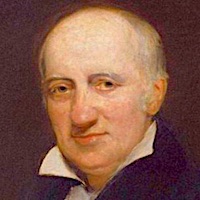
William Godwin
1756 – 1836 CE
Provocative and influential social, political, and literary critic
Mary Shelley’s father, married to pioneering feminist Mary Wollstonecraft, journalist, philosopher, publisher, translator, and author; Godwin became the first to promote utilitarianism and modern anarchism. He attacked aristocratic privilege, advocated the abolition of marriage, wrote numerous novels, and became a major influence on British literature and culture. His views on progress, life extension, and human perfectibility gave inspiration for his daughter’s novel, Frankenstein. He opposed Malthus, became a literary influence on Dickens and Poe, a political influence on Peter Kropotkin, libertarianism, and communism.
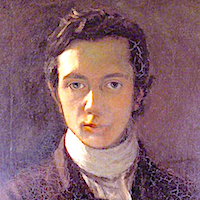
William Hazlitt
1778 – 1830 CE
One of the English languages best art and literature critics of all time
The most influential art critic of his age, considered the best essayist in the English language, and one of the English language’s greatest critics; Hazlitt befriended and helped Coleridge, Wordsworth, Keats, Jeremy Bentham, Stendhal and many of the 19th century’s most important writers. The keen psychological insight that makes him still relevant today however, didn’t go over very well in his own time. Both Wordsworth and Coleridge retaliated to his criticism by spreading negative rumors. Also a poet, journalist, and philosopher; he was devoted to his work but seldom popular enough to earn sufficient income, he had to depend on his wife’s independent wealth. When she left him, he continued his writing but sunk into poverty, illness, depression, and was “excommunicated from all decent society.”

William Wordsworth
1770 – 1850 CE
Orphaned at an early age, connected with the common man while wandering through Europe on foot, caught up in both the ups and downs of the French Revolution, and Britain's only Poet Laureate who wrote no official verse; Wordsworth defined poetry as "the spontaneous overflow of powerful feelings” and along with Samuel Coleridge, used poems based in common language to help launch the Romantic Age of literature. A student of John "Walking" Stewart who blended yoga and Eastern wisdom from India with western pantheism, he published some of the most influential poetry in Western literature.
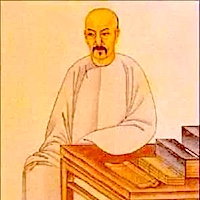
Zhang Xuecheng 章学诚 章学诚 (Chang Hsüeh-ch'eng)
1738 – 1801 CE
A famous historian, philosopher, and writer who was mainly unknown during his lifetime dying in poverty with few friends; Zhang Xuecheng's fame only began almost 100 years after he died. A revolutionary thinker, he crossed the status quo view that Confucianism is based on timeless principles and described it as an evolving set of realizations deepening as it faced and explained contemporary changes. He condemned self-serving partisanship, encouraged diversity, and individuation. A true advocate for the words over the sense, he emphasized the need to transcend language rather than becoming a slave to concepts. His focus on China's difficult struggle to blend the strong Taoist, Buddhist, and Confucian traditions into what's called now neo-Confucianism; has a powerful relevance to our own time of intense cultural, political, and religious amalgamation.
Quotes (1 Quotes)

“Voltaire began the great age of the Enlightenment. Things came to him dull and he made them radiant. Never did one man teach so many, or with such irresistible artistry. As all Europe bowed to the scepter of his pen, so the great leaders of the mind in later centuries honored him as the fountainhead of the intellectual enlightenment. If we forget to honor Voltaire, we become unworthy of freedom.”
Comments: Click to comment
Western Eras
Agricultural Revolution (10500 – 4000 BCE)
Sumerian (Mesopotamia) Civilization (4400 – 3100 BCE)
Egyptian Civilization (3150 – 305 BCE)
Babylonian Civilization (1895 – 619 BCE)
The Axial Age, “The Great Leap of Being” (800 – 200 BCE)
Greek Civilization (480 – 146 BCE)
Roman Civilization (100 BCE – 395 CE)
Early Middle Ages (566 – 1095 CE)
High Middle Ages (1095 – 1304 CE)
The Age of Reason: The Enlightenment (1620 – 1800 CE)
Post-Romantic Age (1850 – 2018 CE)
American Civil War (1861 – 1865 CE)
Comments (0)